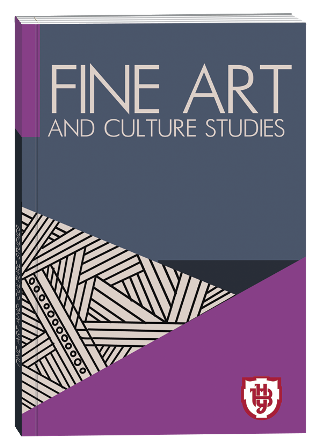FEATURES OF PROFESSIONAL TRAINING OF VOCAL ENSEMBLE LEADERS
DOI:
https://doi.org/10.32782/facs-2022-1-10Keywords:
vocal ensemble, musical art, training of the leader of vocal ensemble, methodical receptions, stages of work on vocal compositionAbstract
The article considers the question of the peculiarities of professional training of bachelors of music art to lead a vocal ensemble. Insufficient coverage of this issue and the lack of appropriate methodological support in the modern system of training leaders of vocal ensembles has actualized the choice of topic. The purpose of this study is to analyze the specific features of the training of future leaders of vocal ensembles, to determine the main stages and methods of work on vocal works. To achieve this goal, the following tasks were set: to analyze the practical work of the head of the vocal ensemble, to describe the main stages of work on musical works. Scientific novelty lies in the development and characterization of the main stages of the vocal ensemble, namely: the preparatory stage, which includes the selection of repertoire, theoretical and practical analysis; technological stage, in the process of which the educational and rehearsal work on intonation, metro-rhythmic, artistic and performing difficulties in the vocal work, the development of vocal and ensemble skills; the final (artistic and creative) stage, aimed at creating a creative concept, a bright artistic and musical image, concert-educational and festival-competition activities. Note that during the training and rehearsal activities with the team it is important to practice vocal and technical skills, aimed at the systematic development of theoretical concepts and practical skills, principles, patterns that introduce participants to the process of creative improvement. These characteristics and properties of vocal work are aimed at developing artistic and creative, aesthetic and value attitude to creative activity. Thus, as a result of the study, the following conclusions were drawn: the future specialist, as the leader of the vocal ensemble must have natural abilities, sound theoretical and practical knowledge. Note that the development of certain stages of work on the work of art will contribute to the formation of professional competence of leaders of vocal ensembles, professional and creative growth of future professionals. The duration of the stages, the degree of detail in the work, the choice of methodological techniques will depend on the complexity of the work, the goals of performance, the level of mastery of vocal and technical skills, individual characteristics of performers. The ability of the leader to involve participants in joint vocal and creative activity will form in participants confidence in the forces, will increase selfestimation, will cause desire to self-expression, self-affirmation, realization of internal potential forces.
References
Бабіч Д. Р. Формування виконавської майстерності майбутніх артистів естрадних ансамблів : автореф. дис… канд. пед. наук : 13.00.02. Київ, 2004. 21 с.
Василенко Л. М. Гедоністичні засади вокальної підготовки майбутніх учителів музичного мистецтва: теорія та методика: монографія. Київ : НПУ імені М. П. Драгоманова, 2012. 336 с.
Ланіна Т. О. Теоретичні основи вокального ансамблевого виконавства. Музичне мистецтво в освітологічному дискурсі. 2017. № 2. С. 46–50.
Падалка Г. М. Педагогіка мистецтва : теорія і методика викладання мистецьких дисциплін. Київ : Освіта України, 2008. 274 с.
Пляченко Т. М. Підготовка майбутнього вчителя музики до роботи з учнівськими оркестрами та інструментальними ансамблями: монографія. Кіровоград: «Імекс-ЛТД», 2010. 428 с.
Шевченко І. Л., Бродський Г. Л. Вокальний ансамбль як форма організації музично-творчої діяльності майбутнього педагога музиканта. Наукові записки. Серія: Педагогічні науки. 2017. № 157. C. 141–147.







